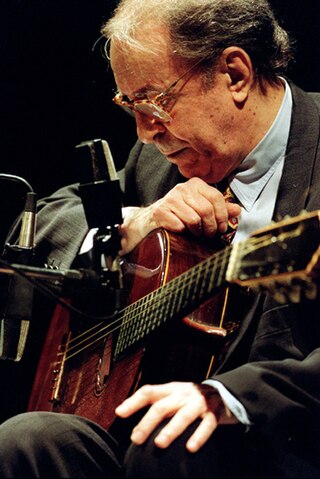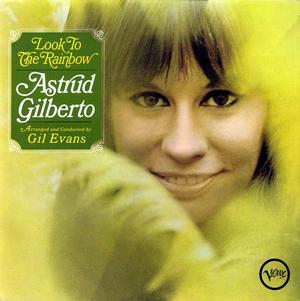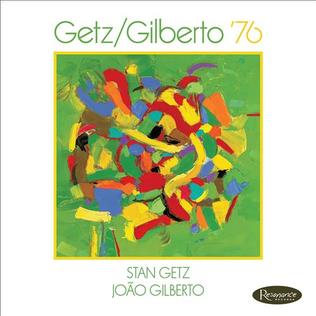
Caetano Emanuel Viana Teles Veloso is a Brazilian composer, singer, guitarist, writer, and political activist. Veloso first became known for his participation in the Brazilian musical movement Tropicalismo, which encompassed theatre, poetry and music in the 1960s, at the beginning of the Brazilian military dictatorship that took power in 1964. He has remained a constant creative influence and best-selling performing artist and composer ever since. Veloso has won nine Latin Grammy Awards and two Grammy Awards. On November 14, 2012, Veloso was honored as the Latin Recording Academy Person of the Year.

Gilberto Passos Gil Moreira, is a Brazilian singer-songwriter and politician, known for both his musical innovation and political activism. From 2003 to 2008, he served as Brazil's Minister of Culture in the administration of President Luiz Inácio Lula da Silva. Gil's musical style incorporates an eclectic range of influences, including rock, Brazilian genres including samba, African music, and reggae.

Os Mutantes are an influential Brazilian rock band that were linked with the Tropicália movement, a dissident musical movement during the Brazilian dictatorship of the late 1960s. The band is considered to be one of the main groups of Brazilian rock. Heavily influenced by Anglo-American psychedelic pop, they bridged Brazilian sensibilities together with studio trickery, feedback, distortion, and musique concrète. They released their now-acclaimed self-titled debut album in 1968.
Bossa nova is a relaxed style of samba developed in the late 1950s and early 1960s in Rio de Janeiro, Brazil. It is mainly characterized by a "different beat" that altered the harmonies with the introduction of unconventional chords and an innovative syncopation of traditional samba from a single rhythmic division. The "bossa nova beat" is characteristic of a samba style and not of an autonomous genre. The bossa nova wave became popular around the world and it helped to renew samba and to contribute to the modernization of Brazilian music.

João Gilberto was a Brazilian guitarist, singer, and composer who was a pioneer of the musical genre of bossa nova in the late 1950s. Around the world, he was often called "father of bossa nova"; in his native Brazil, he was referred to as "O Mito".

Eduardo de Góes "Edu" Lobo is a Brazilian singer, guitarist, and composer.

Getz/Gilberto is an album by American saxophonist Stan Getz and Brazilian guitarist João Gilberto, featuring pianist and composer Antônio Carlos Jobim, who also composed many of the tracks. It was released in March 1964 by Verve Records. The album features the vocals of Astrud Gilberto on two tracks, "Garota de Ipanema" and "Corcovado". The artwork was done by artist Olga Albizu. Getz/Gilberto is a jazz and bossa nova album and includes tracks such as "Desafinado", "Corcovado", and "Garota de Ipanema". The last received a Grammy Award for Record of the Year and started Astrud Gilberto's career. "Doralice" and "Para Machucar Meu Coração" strengthened Gilberto's and Jobim's respect for the tradition of pre-bossa nova samba.

João Voz e Violão is a bossa nova album by João Gilberto, released in 2000. Recording very little in the 1990s, this album is Gilberto's first studio album since 1991's João. The album won the 2001 Grammy Award for Best World Music Album.
Ithamara Koorax is a Brazilian jazz and pop singer.

Erasmo Carlos was a Brazilian singer and songwriter, most closely associated with his friend and longtime collaborator Roberto Carlos. Together, they created many chart hits including "É Proibido Fumar", "Sentado à beira do caminho", "Além do Horizonte", "Amigo" and "Festa de Arromba".

Getz/Gilberto #2 is a live album by Stan Getz and João Gilberto, released in 1966. It was recorded at a live concert at Carnegie Hall in October 1964. The previous album Getz/Gilberto won the 1965 Grammy Awards for Best Album of the Year and Best Jazz Instrumental Album - Individual or Group amongst others. The painting on the cover is by Olga Albizu.

Astrud Gilberto was a Brazilian samba and bossa nova singer and songwriter. She gained international attention in the mid-1960s following her recording of the song "The Girl from Ipanema".
Talismã is a studio album by Brazilian singer Maria Bethânia released in 1980.

Gil e Jorge is a 1975 album featuring collaboration between Brazilian musicians Jorge Ben and Gilberto Gil. The two perform together alongside percussionist Djalma Corrêa on each of the songs, improvising and interacting directly throughout. The album was released in Brazil under the title "Ogum Xangô" with a different cover.

Gilberto Gil (also commonly referred to as Gilberto Gil (Frevo Rasgado) to differentiate it from Gil's other self-titled releases) is the second studio album by Gilberto Gil, originally released in early 1968. The album features a blending of traditional Brazilian styles such as samba and bossa nova with American rock and roll. It also mixes Rogério Duprat's orchestral arrangements with the electric guitars of Brazilian rock group Os Mutantes.

Look to the Rainbow is a 1966 album by Astrud Gilberto, arranged by Gil Evans and Al Cohn.

Gilberto Gil is the third solo album by Gilberto Gil, originally released in 1969. The album was arranged by Rogério Duprat, and has a strong element of psychedelic rock to it, being considered by some to be his most experimental album. Since Gil was not allowed by the Brazilian military dictatorship to leave Salvador, Bahia, before being exiled to London, he recorded vocals and acoustic guitar in Salvador, and Rogério Duprat recorded the other instruments in Rio de Janeiro and São Paulo.

Expresso 2222 is the fifth studio album by Brazilian artist Gilberto Gil, released in June 1972 by Philips Records. In October 2007, the magazine Rolling Stone's Brazilian edition published a list of the 100 Greatest Albums of Brazilian Music, in which Expresso 2222 featured at number 26.

Getz/Gilberto '76 is a live album by saxophonist Stan Getz and guitarist/vocalist João Gilberto which was recorded at Keystone Korner in 1976 and released on the Resonance label in 2016.
Soy Loco por Ti America is an album by the Brazilian musician Gilberto Gil. It was released internationally in 1988.
















